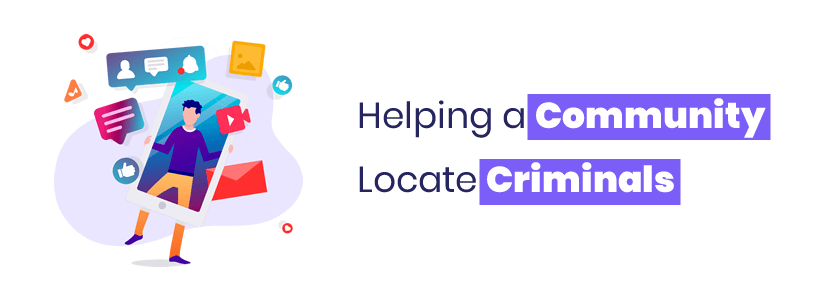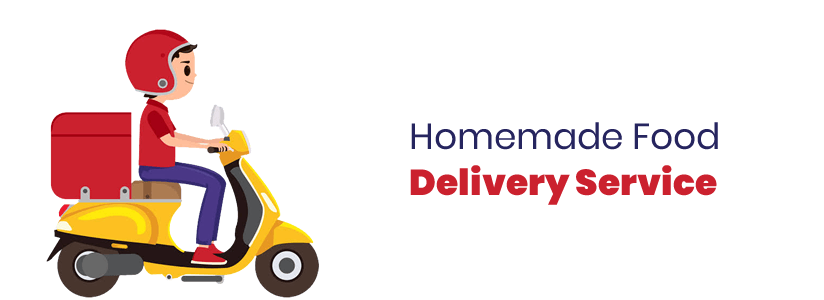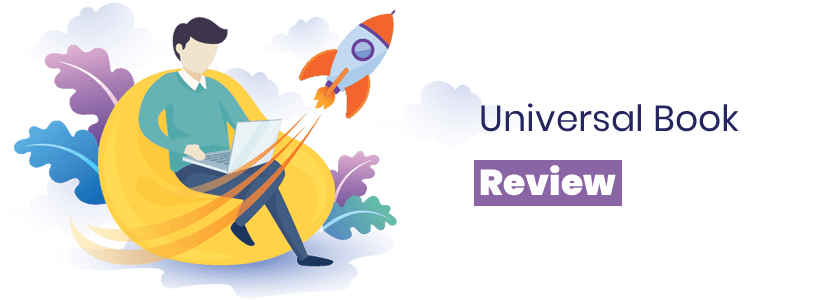50 Mobile App Startup Ideas for the Problem-Solvers out there
‘Of course, there’s an app for that.’
When Daniel Kraft, MD, uttered these words about his digital stethoscope, he was neither exaggerating nor fooling around. After all, isn’t there an app for everyone and everything around? As per Statista, Apple App Store has around 2 Million apps. Google Play Store lists over 3.3 million entries. And, despite occasional burst of ‘app development is dying’ emanating from different corners of the tech world, the scenario remains as dynamically improving as ever.
But, How Can You Discover the Perfect Innovative Mobile Application Ideas?
Have you ever said ‘An app would be just the right thing for my brand at this point’, only to be met with reactions like ‘You can’t afford it’, ‘What if no one downloads it’, or ‘What’s the point’?
Generating app ideas can be daunting, especially for the first-timers
The seemingly endless uncertainties, the prospective popularity, return on investment, lack of a tangible result- there’s so much to worry about.
To ease that stress, I’ve curated fifty suggestions which you may find interesting.
Looking for a Problem to Solve? Try One of These 50 App Ideas
1. Help a Blind Person
Much like the ‘Be My Eyes’ app, create a dialogue between a blind person and a volunteer via a live video feed. Let the former access the app via voice commands. Let the latter sign-up, be notified accordingly, and get connected to someone in need via live streaming.
2. Money Lending and Borrowing Records
While group outings are very common in friend circles, splitting the bill six ways, for instance, and the casual lending that follows often ends up costing one friend more than their share.
This mobile app idea for students and groups everywhere, in general, can help people keep track of who owes them how much and what they owe to others.
3. Uber for Personal Care
It’s the era of the on-demand services.
Just like Uber for taxis, in the field of personal care, this app would ask beauty services to sign up and offer their services to customers with an at-home add-on. The user would select the beautician and get treated at their home for a fee.
Read the Blog: Why Choose India For Your Next Software Development Project
4. Plan a Vacation
Every information one may need when residing in a strange city, affiliated hotels and restaurants, local sights and vendors, B&Bs, all of it wrapped up in an app with cost estimations and location-specific touring instructions.
However, I’d suggest you start small. Begin with an exhaustive guide for one city. Scale by adding entries.
5. The Toy Swap
As long as your child stays a toddler, h/she gets toys from relatives, friends, family, visitors. But, children outgrow their preferences quite quickly.
This app is supposed to create a community of parents. It could let people organise exclusive groups for a neighbourhood or friends.
Put up the toys your children no longer need/want and swap it with something from another user’s collections.
6. Keep the Night Alive
An app that uses your location to offer exact directions and food and beverage menu of the pubs and restaurants near you. And, the list is sorted in real time, making sure you only see the places that are still open for service.
7. Get Rid of the Unused Stuff
You’ve heard about eBay, Craigslist, and OLX, I’m sure.
This one offers a similar service, except it’s more like the giveaway section of Quickr. It’d be the app-equivalent of leaving your old sofa on the sidewalk so that anybody else can take it home.
8. The Temporary Employment App for Travelers
For a startup solving real problems, or at least intending to do so, this is a fine concept to explore.
Collect all the local businesses that are willing to hire people for a day, list the services on the app, and let people take up these temporary jobs to get paid.
It’d be especially useful for travellers who look forward to making some money on their way from one town to another.
Read the Blog: 10 mistakes to avoid while hiring IT outsourcing companies
9. Alcohol Intake Recorder and Driving Capacity Calculator
The app database would be filled with all types of alcoholic drinks, with information about how each affects a man or woman and for how long. The user can put in the drink name and the quantity they’ve had.
The app would calculate when the user can have their next drink and whether they should be allowed to drive.
10. Helping a Community Locate Criminals

You were mugged. The culprit got away. The police asked for your help to prepare a sketch. But, it was kept for internal investigation and never revealed to the masses.
Sounds plausible?
This app can be your solution. The concept- let a user describe the mugger, elaborate on how h/she looked, walked, talked, dressed, etc. The info is released to every user in and around the locality where the mugging took place.
Scale it by offering automated drawings fueled by the description. You could collaborate with state authorities on this one to ensure better results.
11. A Reverse Cookbook Chatbot App
What does it entail-
- A bot with multiple conversational flows, so that the user can hold a natural conversation with it
- A reverse calculator that uses ingredients as inputs and offers dishes that can be cooked with the available items as output
- A database with recipes to further assist the user
12. A Service to Send Greeting Cards
And, not the online kind.
Let a user pick from your selections of templates. Allow them to personalise the message and ask for the recipient’s details and address.
Print the greetings. Wrap and post them. Of course, the customer would have to pay online for the shipping and the convenience charges.
13. Medical Reminders
Before you can object with a ‘Don’t we already have plenty of similar apps, like Google Keep’, I urge that you hear me out.
This one is an exclusive application that demands inputs, like:
- Name of the medicine
- The number of dosage per day
- The time of each dose
- The course of the medication
As a user, you’d receive reminders with the least possible hassle.
14. Local Transportation Informer
In Apostle Island, Wisconsin, you take a ferry in the summer and an ice boat in the winter as the usual public transportation mode. In Wuppertal, Germany, people use the suspended monorail. Turkey uses underground funicular. In Vietnam, it’s a tricycle taxi that often takes people places.
The local modes of transportation vary across, cities, countries, continents. Create an app with well-detailed information about public commute specific to a region. Scale with time.
15. Translator Camera
The Google translation services offer a similar app, called the Word Lens.
However, you have to aim for higher accuracy, proper language integration, and offline access to direct translation upon capturing a picture that has words.
Start slow. Look into voice integration at a later point.
16. Delivery Peer-to-Peer
Let a user register and enter information about the parcel, including its destination, weight, size, contents, or any special instructions. Once they pay, pick up the package from the customer’s door and have it sent to the recipient’s.
While similar services exist, like PickParcel, they aren’t doing very well in the current market. Of course, you’d need some reasonably priced and trusted courier partners on board.
17. Receipt Keeper
Receipts are useful for many reasons. You need them for financial audits, to return the product, avail loyalty benefits, etc.
This app would let users store the digital copies of every receipt by scanning it with your phone camera. You may also offer better storage limit, sharing options, etc.

18. Find Live Parking Spots
This one is tricky to execute.
The concept- let people with the app allow access to their location. The app would spot open parking spots near them and inform the user.
How to execute it?
You can integrate with Parking all over the city to offer updated information. But, it’ll require significant manoeuvring to create an algorithm that works here, given the dynamically changing nature of the problem.
19. An Online 3D Printing Store
The app would accept designs, quote prices, and deliver the 3D printed result to the user’s door.
20. Chord Recognizer
It’s tough to pin down all the chords of a song by merely listening to it. Musicians may relate.
With a community of interested people, this app would offer chords for an entered song. The user would have access to discussion forums to improve on the already existing information about the chords for a particular song.
21. Packing Checker
Think along the lines of an AI-enabled visual search.
A user can make a list of stuff they need to pack. Once done gathering the items, they can take a picture, and the app would automatically connect different entities in the image to its description and check off that item in the list.
22. The Dog Walker Network
Build a community of on-demand dog walkers. Arrange them by area. Let the users as well as professional service providers create an account and connect with each other. Additionally, offer points and loyalty benefits to the walkers. Employ ratings and reviews to weed off the bad ones.
23. Disaster Alert
Again, I am talking about chatbot integration.
Only, instead of asking people to install the app, it’d broadcast distress messages and calamity alerts to people’s phone. The communication would be direct, less complicated, and very useful in case of an emergency.
24. Homemade Food Delivery Service

The concept is a lot like the ‘Dabbawalas’ of Mumbai, except that it’d be a mobile application, exist online, with the possibility to be scaled globally.
You’d need a system to vet the food vendors, employ a reliable and fast delivery system in place, and ensure swift payment flow.
25. Rent-a-Luggage for Travellers
With a twist.
Let people rent the baggage space they are allowed by any airline. People with less luggage can help those with more. It’d help everyone save some money.
26. One Click Restaurant Reservation
The app would show the users the seating layout of the eatery, allowing them to check the availability of their desired tables as well.
27. Virtual Interior Designer
Let people snap the insides of a room. The app would come up with a virtual rendition of the space with the help of the picture. Then, the user would test and try different styles and pick the final design from a library of templates or customize one as per their desires.
28. A Car-Rental Service for Vehicle Owners
Let the user register their car on the app. Allow the online community to rent the vehicle for hours, days, or weeks. Build a conversation between the two parties. Set up standard fuel charges, driving permit fee, and convenience charges.
Think along the lines of the already-growing service Zoomcar.
29. Device Detox
The idea- lock a user out of their phone for a chosen period.
One way to accomplish it is to ask them for a device-locking pin and then randomly change the pin for the time chosen, only to change it back after the device detox period expires.
30. Subscription Organizer
A user would enter the details of every subscription they have, i.e. cable, Netflix, Amazon Prime, mobile bill, etc. with the expiry date. The app would remind them at the time of renewal.
31. Food Donation
Enlist the local restaurants and charities as your users. The former can pick from a list of the latter to donate the leftover, whenever possible.
It’s a two-way solution to prevent food wastage and help charitable institutions feed the hungry.
32. Universal Book Review

If someone snaps the cover of a book, including the title and the author’s name, the app will return a list of top reviews obtained from sources like Goodreads, Amazon, Flipkart, etc.
33. The Farmer’s Market
This one requires a lot of effort. Unless you’re one of the businesses that solve problems for the masses, I‘d suggest you skip it.
Gather information about the local farming community. Compose a comprehensive list of the producers as well as the produce. Offer access to the grocery stores in the area as well as to individual buyers.
You may also create a bidding system for the highest-quality products.
34. Band Builder
The problem- finding and inviting band members while having no time to conduct auditions.
The solution- an app that lets people record and upload their riff clips. Users can listen to these clips, initiate a conversation with other users, and gather band members without spending their time trying to put together a get-together for interested folks.
35. Mobile Gym Assistant
Let the fitness-enthusiasts talk to registered trainers and book sessions without worrying about gym memberships, trainer reliability, or scheduling concerns
36. Decibel Level Based SOS App
Instead of relying on a potential victim of any mishappenings to reach their phone, open an app, and press the panic alarm, why not measure the distress level via decibels?
People almost always scream in panic. Let the app recognise decibel levels and issue an alert to the concerned parties based on that.
37. Anti-Procrastination
Executing this concept may require services like Amazon Alexa, to grasp on every word uttered in the device’s presence. If you were to speak an ‘I’ll do it later’, or another similar phrase typical to procrastinators, the entire thread would be saved as a task. The user would get a notification a few hours later or at the designated hour.
38. CSR Rater
This app would offer a database of every local business, with details about how they operate, how conscious the leaders are, and what, if any, immoral or environment-threatening elements mar their reputation.
The idea is to encourage daily consumers to choose the responsible businesses over the profit-crazy ones.
39. Universal Gym-Pass
The app would record a user’s gymming activities, active memberships, and fitness details. Whenever the user shifts locations or travels, the app would suggest a local partner-gym for the user so that they do not miss their working-out goals.
40. Smart Contracts
A smart contract, by definition, is a self-regulated contract that’s held by a network in escrow and relies on future events to attain completion or cancellation status.
You’d use a hybrid app and let your users employ smart contracts to control a blockchain. Of course, it will be tougher to accomplish than it sounds.

41. Notary
Existing examples include Uproov and Stampd.io. You’d use the blockchain tech to offer an inexpensive notary system. Your user would create audio, video, or images and be granted the proof of the digital creation ownership.
42. Digital Identity & Security
Another blockchain implementation that lets the app employ public key cryptography and digital signatures to authenticate and verify users.
43. A Virtual Fitting Room
From using the mobile camera to create a 3D rendering of the user to constructing a virtual environment where the user can try on clothes and receive an accurate reflection of how they would look- all that in a mobile application.
44. Animal Shelter Adoption Service
It’s better to keep it city-specific. However, you may choose to scale at a later point.
The idea is to integrate a database with that of all animal shelters in a city. Offer accurate information about the animals. Let users sign up and adopt the strays.
Of course, employ a system to vet the adopting party and make sure the shelter offers accurate information about the animal’s health condition.
45. Vertical Farming Assistance
The app would let the user create and control an environment that supports farming in spite of limited space. You’d integrate weather forecasting service, UV level reader, pollution indicator, air quality calculator, etc. with the app to offer adequate information and hence exercise proper control over the app.
Read the blog: Native vs Progressive Web Apps
46. Child Simulator
The app will need to be taken care of as an infant. The user would have to access the app to feed the hypothetical child at regular intervals, establish a routine for its changing and napping habits, and do it all in real-time.
While it may appear like a game, it would be good practice for those who are either considering or looking forward to parenting.
47. Competitive Jogging
This app would let a user choose a nearby jogging path from all available options and record the user’s run-time on it. On a scale, every user who’d run the track would be ranked by their run-time.
This would offer the joggers something to look forward to during their early runs while incentivising fitness as well.
48. On-Demand Odd Jobs
Someone needs a lawn mowed, a doorknob mended, a shower fixed, or snow shovelled from their driveway. They’d use this app to find a well-rated employee for any particular gig and pay him/her through the app.
A single community for all kinds of odd jobs- that’s what you’d have to build.
49. AR Education
The idea- an app that’d help teachers explains concepts, like that of a human cell or a historical event, by not merely stating the facts but making the child realise them using Augmented Reality
50. Surgery Assistance
It’d be another AR application where the user would be able to recreate a patient’s anatomy using 3D rendering. It’d help the operational team walk through the procedure, fix their concepts, and consider all possibilities before going ahead with the real thing.
And, before You Pick One, Make Sure You Understand the Consequences
Never forget- if your app doesn’t offer value, it’s not worth anyone’s time or money.
Forget about money for now. Not every app is geared towards monetisation, especially not in its initial years.

And, always remember, an excellent execution matters more than a good idea at times. It may have been done before. But, if you believe you can do better, not marginally but immensely better, if you suppose that you can introduce a modified method, lead to a more efficient system, go for it.
Similar Posts

A Comprehensive Guide to Embedded Software Development for Businesses
In an increasingly interconnected world, businesses across various industries rely on embedded systems to power their products and services. Embedded software development is a specialized field that creates software solutions tailored for these systems. In this comprehensive guide, we will explore what embedded software development entails, highlight the reasons for businesses to invest in it, […]...

10 Essential Features to Include in Your Custom CMS Development
Content Management Systems (CMS) have revolutionized the way websites are built, managed, and updated. While there are numerous off-the-shelf CMS platforms available, there are cases where a custom CMS is the better choice. Custom CMS development empowers businesses to tailor the system to their specific needs, resulting in enhanced control, performance, and user experience. In […]...

How to Build Custom ERM Software From Scratch
Have you ever felt like your business is juggling too many balls at once, struggling to keep up with the ever-increasing demands of the modern marketplace? In a world where data is the currency of success, how can you ensure your organization not only survives but thrives amidst the chaos? Imagine having a tool that’s […]...







